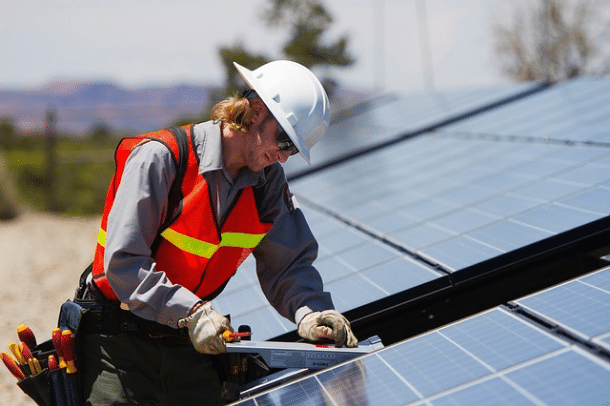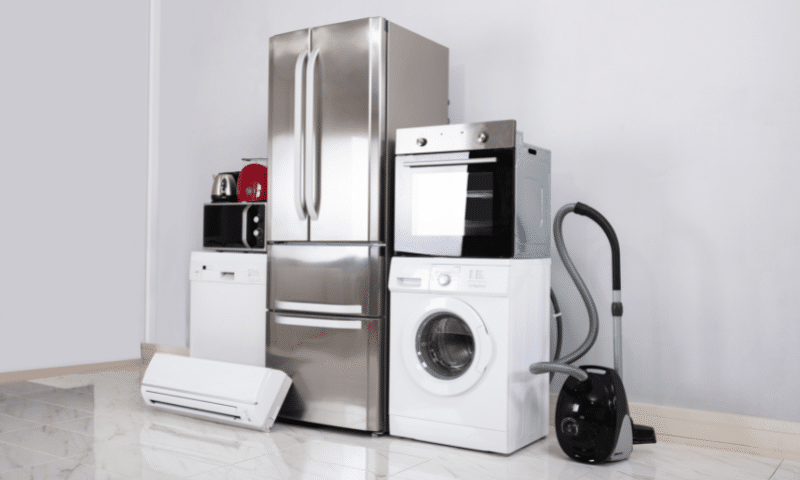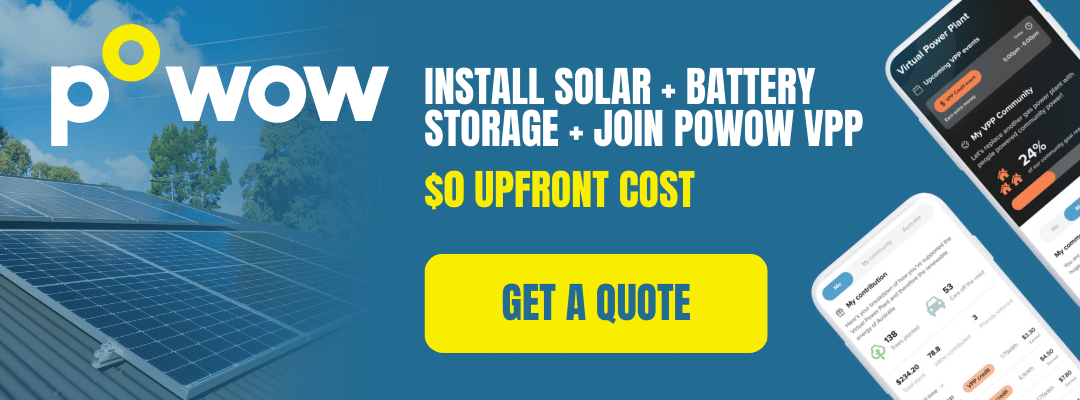
On this page
Council approval regulations is an essential part of the construction industry in Australia. They help ensure that buildings and developments are safe, compliant with regulations, and do not harm the environment. However, with the rapid changes in technology, climate, and society, council approval regulations are likely to change in the future.
One of the most significant changes that council approval regulations may undergo is an increased focus on sustainability. Climate change is already significantly impacting Australia, with more frequent and severe weather events such as bushfires and floods.
As a result, councils are likely to become more strict on sustainability requirements for new developments. This may include requirements for solar panels, water tanks, and other sustainable features.
Energy Matters has been a leader in the renewable energy industry since 2005 and has helped over 40,000 Australian households in their journey to energy independence.
Let us discuss and choose the best quote that suits your needs and budget, and we can connect you with our trusted local installers, who will provide up to 3 FREE quotes for your home and business solar energy system. Get your free quotes today!
Another potential change to council approval regulations is the use of technology. With the increasing prevalence of building information modelling (BIM), councils may require developers to submit digital models of their proposed developments for approval. This would allow councils to better visualise the development and ensure it meets regulations before construction begins.
Furthermore, councils may also begin to utilise drones for inspections of buildings and developments. Drones can provide high-quality images and video of hard-to-reach areas, making it easier for councils to inspect and approve developments. This could lead to faster approval times and lower costs for developers.
In terms of the impact on consumers, stricter regulations around sustainability and technology may lead to higher costs for developers, which could be passed on to buyers. However, these costs may be offset by lower ongoing costs, such as reduced energy bills, for sustainable buildings.
Additionally, the use of technology such as BIM and drones could lead to faster approvals and potentially lower costs for developers, which could be passed on to buyers.
For the industry, the changes to council approval regulations may require a significant shift in how developers operate. Developers may need to invest more in sustainability and technology to meet the new regulations. However, this could also lead to new opportunities for innovation and differentiation in the market.
Best practices
Applying for council approval can be a daunting process, especially for those who are new to it. However, with the right guidance and knowledge, you can easily navigate the process and get the approval you need. In this article, we will take an in-depth look at how to apply for council approval in Australia and what to include in your application.
Step 1: Know the planning rules and regulations
The first step in applying for council approval is understanding your area’s planning rules and regulations. This will ensure that your application meets the necessary requirements and is not rejected. Each council has its own set of planning rules and regulations, so it’s important to research and find out what they are before you begin.
Step 2: Determine the application type
The next step is to determine what type of application you need to submit. There are different types of applications, depending on what you want to do. For example, if you want to build a new structure or make changes to an existing one, you will need a Development Application (DA). If you want to subdivide land, you will need a Subdivision Application.
Step 3: Gather the required documents
Once you have determined the type of application you need to submit, you should gather all the required documents. This may include plans, specifications, reports, and other supporting documentation. It’s important to ensure that all the documents are complete and accurate, as incomplete or incorrect information can delay the application process.
Step 4: Submit the application
Once you have gathered all the required documents, you can submit your application to the council. You can do this online or in person, depending on the council’s policies. It’s important to keep in mind that there may be a fee associated with submitting the application.
Step 5: Communicate with council members
During the application process, it’s important to communicate with council members. This can help you to get a better understanding of the process and what to expect. It’s important to be polite and professional when communicating with council members, as this can help to build a positive relationship with them.
Step 6: Attend meetings and hearings
In some cases, you may be required to attend meetings or hearings with the council. This can provide an opportunity for you to present your case and answer any questions the council may have. It’s important to be prepared for these meetings and hearings, as they can have a significant impact on the outcome of your application.
Step 7: Follow up
After you have submitted your application, it’s important to follow up with the council to ensure that everything is progressing as it should. This can help to ensure that any issues or concerns are addressed in a timely manner.
Solar energy has numerous advantages that are worth investigating. Investing in solar will minimise your operational costs, reduce your company’s carbon footprint, and prepare it for the future. A commercial property with a solar installation is excellent for business.
Contact us today for up to 3 FREE quotations from commercial solar firms we’ve pre-qualified and vetted for their track record of delivering Australia’s best business solar systems. Get your free quotes and begin your solar journey today!
Green Energy Trends
One of the main ways that councils are encouraging the installation of green energy systems is by offering a range of incentives and rebates. For example, many councils offer rebates for the installation of solar panels or energy-efficient appliances, and some even offer low-interest loans to help finance the installation of these systems. Additionally, councils are working with energy providers to offer feed-in tariffs for excess energy generated by renewable energy systems, which can help to offset the cost of the installation.
Another way that councils are promoting the uptake of green energy solutions is through education and outreach programs. Many councils offer workshops and training sessions on the benefits of renewable energy systems, as well as advice on how to install and maintain these systems. This education and outreach helps to demystify the process of installing renewable energy systems and encourages more people to consider these solutions for their homes and businesses.

FAQs
The answer to this question depends on a number of factors, including the type of property you have and the type of solar panels you want to install. Generally speaking, if you want to install solar panels on a single-storey residential property, you will not need council approval as long as the panels meet certain requirements. However, if you want to install solar panels on a multi-storey residential or commercial property, or if you want to install panels that do not meet certain requirements, you may need to obtain council approval.
Check out our page to learn more about if you need council approval for solar panels.
As mentioned above, the types of solar panels that require council approval may vary depending on your location and the type of property you have. However, some general guidelines can be applied. If you want to install traditional silicon-based solar panels on a single-storey residential property, you will likely not need council approval. However, if you want to install panels on a multi-storey residential or commercial property, you may need to obtain council approval.
The length of the council approval process can vary depending on a number of factors, including the complexity of the installation, the specific requirements of the council, and the time of year. Generally speaking, the council approval process can take anywhere from a few days to several weeks. It is important to note that you should allow plenty of time for the approval process before you begin your solar panel installation.
The specific requirements for solar panel installation in Australia can vary depending on your location and the type of property you have. However, some general guidelines can be applied. In general, solar panels must be installed by a licensed installer and must meet certain safety standards. In addition, you may need to obtain a grid connection approval from your electricity distributor. It is important to check with your local council and electricity distributor for specific requirements in your area.
To obtain council approval, you will need to provide detailed information about your solar panel installation. This includes the type and size of the solar panels, their location on your property, and any additional structures required for the installation. You will also need to provide a detailed plan of the installation and any relevant engineering or structural reports.
If you install solar panels without council approval, you may be fined or required to remove the panels. In addition, if you plan to sell your property in the future, you may have difficulty obtaining a sale if the installation was not approved by the council.
Yes, you can install solar panels on a heritage-listed property, but you will need to obtain council approval. The council will need to ensure that the installation does not affect the heritage value of the property.
The cost of council approval for solar panels varies depending on the council and the complexity of the installation. In general, the cost of council approval ranges from a few hundred dollars to a few thousand dollars. It is important to factor in this cost when planning your solar panel installation budget.
In addition to council approval, you may also need to obtain approval from your electricity retailer. This is because the installation of solar panels may affect your electricity metering and billing. It is important to contact your electricity retailer before installing solar panels to discuss any requirements or changes to your electricity account.
In Australia, solar panel installation must be carried out by a licensed and accredited installer. This ensures that the installation is safe and complies with all relevant regulations. It is important to choose a licensed and accredited installer for your solar panel installation.
Several factors can affect council approval for solar panels, including the size of the installation, the location of the panels on your property, and the type of building or structure on which the panels will be installed. Other factors that may affect council approval include the heritage status of your property, the bushfire risk in your area, and any local planning or zoning regulations.
Still can’t afford to switch to solar power?
Are you considering getting solar panels but are currently short on funds? You can still invest wisely, and Energy Matters can help you.
Powow and Energy Matters have teamed up to provide consumers with an alternative to switching to solar power and battery storage.
The biggest obstacle to installing solar and battery storage is typically finance. With Powow’s PPA and VPP, our customers will have a $0 upfront option and financial stability in the uncertain energy market.
Get up to 3 obligation-free quotes by getting in touch with us right away. Find out what payment plan options suit your needs and budget!
Check out our page for Powow: Power Purchase Agreement (PPA) and Virtual Power Plant (VPP).
Energy Matters will feature stunning homes installed with the latest solar technology every Saturday at 4.30 pm on Open Homes Australia on the 9Life channel. Be sure to watch this show; you don’t want to miss it!











































